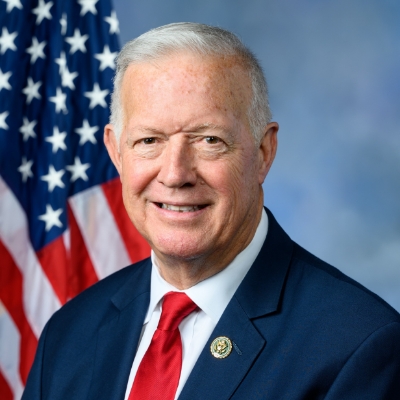- Home
- About
- Contact
- Services
- Art Competition
- Community Project Requests
- Congressional Commendations
- Flags
- Assistance with a Federal Agency
- Internships
- Military Academy Nominations
- Passports
- Presidential Greetings
- Tours and Tickets
- The Congressional Award
- Grants
- Water Resources Development Act 2026
- Additional Services and Resources
- Media
- Legislation
- Issues
- Resources
 U.S. REPRESENTATIVE
Randy Weber
Proudly Serving Texas' 14th District
U.S. REPRESENTATIVE
Randy Weber
Proudly Serving Texas' 14th District
Foreign Affairs and International Trade
Foreign AffairsHaving served for two terms on the House Committee on Foreign Affairs, I am aware of the essential role that Congress plays in directing U.S. foreign policy. With our “power of the purse,” the House has a duty to restrain and punish our adversaries, while supporting our global allies. The global environment is changing, and America’s adversaries are increasingly acting against U.S. interests. Congress has worked with the Trump Administration to push back against military aggression around the globe. In previous years, we passed legislation ensuring that bad actors such as Iran, China, North Korea and Russia were confronted, reassuring America’s global allies of our commitment. In 2017, Congress passed the Countering America’s Adversaries through Sanctions Act (H.R. 3364), which strengthened sanctions on Russia. At a time when Russia is increasingly threatening its neighbors, including key NATO allies such as Estonia, Latvia and Lithuania, Congress must demonstrate our steadfast commitment to our friends and be willing to punish states that threaten our interests. Congress took action to support the State of Israel in the face of threats from Iran and the terrorists that it supports. On September 12, 2018, the House passed the United States-Israel Security Assistance Authorization Act (S. 2497). This act extends America’s commitment to helping Israel defend itself, including by strengthening the critical Iron Dome Missile Defense System. This system is already saving lives as it intercepts missiles from Gaza targeting innocent civilians. I will continue to ensure that Israel has the capabilities it needs to deter aggression, to protect its people, and, when necessary, to fight back against its adversaries. Additionally, Congress strengthened sanctions targeting Hezbollah with the passage of S.1595, the Hizballah International Financing Prevention Amendments Act of 2018. This bill, which President Trump signed into law on October 25, 2018, sanctions members of the Iranian regime and others who fund its terrorist activities. Hezbollah and their Iranian benefactors must understand that the United States will use its many tools to thwart their evil and destructive actions. While Iran is the world’s leading state-sponsor of terror, we have not lost sight of other terrorist threats. On November 14, 2018, the House passed the Trans-Sahara Counterterrorism Partnership Act of 2018. This bill would improve the coordination of our programs that empower African states to combat and dismantle Al Qaeda-affiliated terrorist groups such as Boko Haram in Nigeria. On September 11, 2001, we learned that we cannot idly allow terrorist groups to establish footholds around the world. This bill will help secure the African continent and ensure that we do not repeat prior mistakes. Although I no longer serve on Foreign Affairs, I will continue to work with my colleagues in Congress to ensure that American interests are protected and to better increase security around the world. International TradeI support free trade, and I believe it should be conducted on an even playing field. When trade is both free and fair, America is eminently competitive. Trade with Mexico and Canada has been governed by the North American Free Trade Agreement (NAFTA), since it came into effect in 1994. NAFTA created one of the most successful trade zones in the world. In May 2017, the Trump Administration notified Congress of its intent to renegotiate and improve upon NAFTA. After more than a year of negotiation, the United States-Mexico-Canada Agreement (USMCA) was signed by the leaders of all three countries on November 30, 2018, in Buenos Aires, Argentina. The USMCA will have a major impact on our state. More than 950,000 Texas jobs are supported by trade with Mexico and Canada. In 2018, Texas exported $109.7 billion in goods to Mexico and $27.4 billion to Canada. A portion of this is being channeled through the five ports of Texas’ 14th Congressional District (TX-14), which I am honored to represent. USMCA further supports trade and innovation by providing stronger protections for American intellectual property and establishing rules that ensure a free and fair digital marketplace. It also provides greater opportunities for small business by cutting red tape and making it easier to ship products across borders. Another item vitally important to TX-14 is a clause that maintains tariff-free treatment for raw and refined oil and gas products. The capacity to refine and export energy is one of our district’s greatest assets, providing jobs to tens of thousands of our neighbors. I believe that the USMCA will be key to America’s continued economic growth. The agreement went into effect on July 1, 2020. For more information concerning my work and views related to Foreign Affairs and International Trade, please contact me. I look forward to hearing from you. Thank you. |
